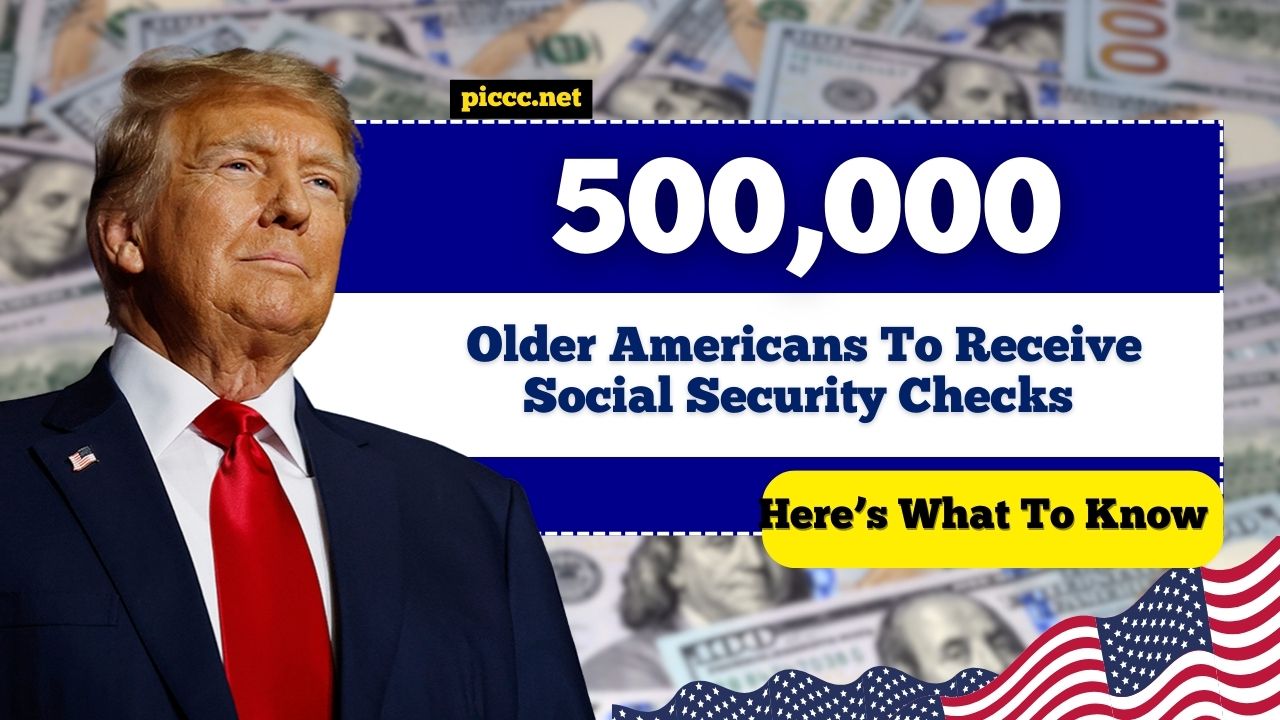500,000 Older Americans To Receive Social Security Checks Online – Here’s What To Know

Beginning September 30, 2025, the Social Security Administration (SSA) will cease issuing paper checks, prompting a transition to electronic payments for nearly half a million recipients.
This significant shift aligns with broader federal efforts toward modernizing payment systems.
This article highlights what is known—and what older Americans need to prepare for—as they move from physical checks to online or direct deposit methods of receiving Social Security benefits.
Overview of the Transition
Why the Change?
- An executive order signed on March 25, 2025 mandates that all federal benefit payments, including Social Security, shift to electronic formats to boost efficiency and security.
- The SSA will stop distributing paper checks entirely by September 30, 2025, affecting those still reliant on the old system.
- Currently, over 68 million Social Security recipients use direct deposit, but approximately 485,000–500,000 individuals—primarily older and unbanked Americans—still receive paper checks.
- The transition aims to reduce fraud, cut costs, and modernize the payroll systems across federal agencies.
- Despite the move, exceptions or waiver processes may be in place for those unable to switch due to lack of access or other hardships.
Key Dates & Figures
| Aspect | Details |
|---|---|
| Transition Deadline | September 30, 2025 |
| Number Affected | Approximately 485,000–500,000 older Americans |
| Federal Mandate | March 25, 2025 Executive Order on electronic disbursements |
| Direct Deposit Adoption | Currently over 68 million recipients use it |
| Objectives | Reduce fraud, lower costs, improve efficiency |
| Exceptions Possible | Cases of technophobia, lack of banking/internet, or mobility issues |
| Required Action | Switch to direct deposit, Direct Express card, or potentially digital wallet options |
| Key Recommendation | Enroll before the September deadline to avoid missed payments |
Who Is Affected & What to Do
Profile of Affected Individuals
- Mostly older adults who are unbanked or prefer checks due to habit or distrust of digital systems.
- Individuals with limited online access, low digital literacy, or physical/mental disabilities.
- Those who may need help navigating new channels like bank enrollment or Direct Express prepaid debit cards.
Necessary Actions for Recipients
Enroll in direct deposit through your bank or credit union.
Consider the Direct Express card, a prepaid debit card by the Treasury.
If unable to enroll online, visit or call your local SSA office for assistance.
Apply for a waiver if absolutely unable to meet requirements—check SSA guidance.
Act immediately, rather than waiting for the deadline to avoid any interruption in benefits.
Why This Matters
- Timely Access to Benefits: Delayed enrollment could result in missed or delayed Social Security payments, affecting critical expenses.
- Security Upgrades: Digital payments reduce fraud risk compared to paper checks.
- Cost and Efficiency Gains: Electronic transmissions save money and administrative resources, benefiting both SSA and taxpayers in the longer term.
Potential Challenges and Solutions
| Challenge | Potential Impact | Suggested Solution |
|---|---|---|
| No access to banking services | Unable to receive benefits digitally | Use the Direct Express card or enroll at SSA office |
| Low digital literacy | Difficulty completing online enrollment | In-person help via SSA offices or local community centers |
| Resistance to change | Preference for paper checks could delay transition | Explain security & convenience benefits of digital payments |
| Accessibility issues | Disabilities may hinder online or card access | SSA supports in-person sign-up and waiver options |
What the Government Is Doing
- SSA Resources: Guidance for switching payment methods, waiver applications, and local office help.
- Community Partnerships: SSA may collaborate with community centers, libraries, and nonprofits to assist enrollments.
- Public Outreach: Campaigns and media communications to alert affected recipients well ahead of the deadline.
- Ongoing Monitoring: SSA will track the pace of conversions and issue callouts for lagging groups needing special outreach.
Looking Ahead: What’s Coming Post-Transition
After September 2025, paper checks will be obsolete. The SSA may:
- Improve “my Social Security” portal, making management of payments and personal data easier.
- Enable new digital wallets or prepaid debit solutions—perhaps as options beyond Direct Express.
- Use AI or automated systems to flag missed enrollments and trigger outreach to assist or waive requirements.
- Continue to streamline communications and improve service experience for beneficiaries.
By September 30, 2025, around 500,000 older Americans will need to switch from paper Social Security checks to electronic payments.
This is part of a sweeping modernization of U.S. federal payment methods mandated by an executive order earlier in 2025.
Transitioning to direct deposit, the Direct Express card, or equivalent options is essential to avoid disruptions.
This change will improve security, reduce fraud, and increase operational efficiency.
Beneficiaries should act now—many may need help setting up digital payments, but SSA resources and community assistance are being mobilized to support them.
Embracing this shift will ensure continued access to vital Social Security payments and help usher in a more secure and efficient delivery system.
Frequently Asked Questions
Will Social Security completely stop paper checks after September 30, 2025?
Yes. Starting October 1, 2025, paper checks will no longer be issued. Recipients must switch to electronic payment methods before then to continue receiving benefits seamlessly.
What if I have no bank account or can’t go online?
If you’re unbanked or can’t manage online enrollment, the Direct Express card is available. You may also visit an SSA office for in-person assistance or apply for a waiver if you absolutely cannot switch.
Why is SSA making this change?
The shift to electronic payments was ordered by the government to reduce fraud, cut costs, and improve overall efficiency in distributing federal benefits—making the system safer and more streamlined.
0 Comments